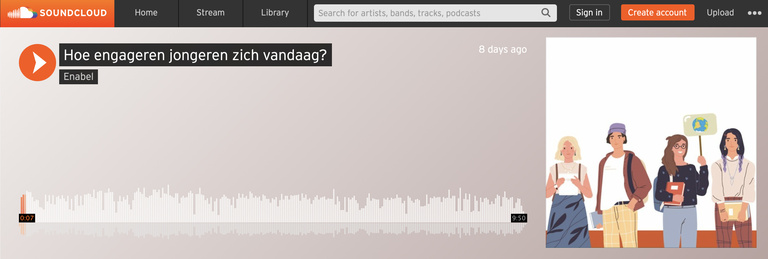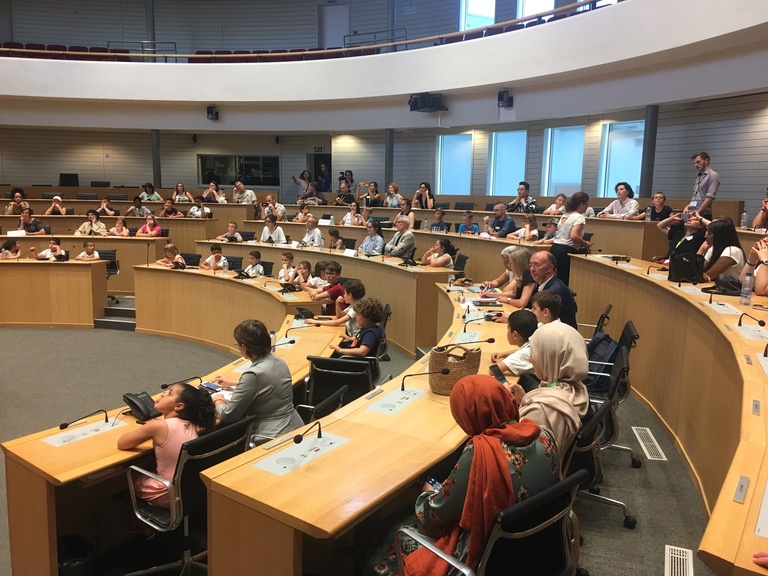Youth Civic Engagement
A participation project with young people on the topics of civic engagement and international solidarity
World Citizenship
Participation
International solidarity
Social media
Studies on young people often point to the difficult relationship they have with the civic and political field: they are said to have no confidence in the political system and criticize the democratic decision-making process. A 2019 study of 14-19 year olds shows that 63%1 of these young people have little or no trust in the government and 69% have little or no trust in politicians. On the other hand, studies - but also recent events - point to the social and environmental awareness of young people. Important examples are the climate marches, #metoo movement or Black Lives Matter.
In what ways are young people engaged? And what are their motivations? What forms of youth civic engagement are emerging today? Commissioned by Enabel, the Belgian development agency, and Plan International Belgium, Méthos listened to a large group of young people between 15 and 19 years old and brought them together to set up a participation project to experiment on new forms of engagement around the themes of social justice and international solidarity.
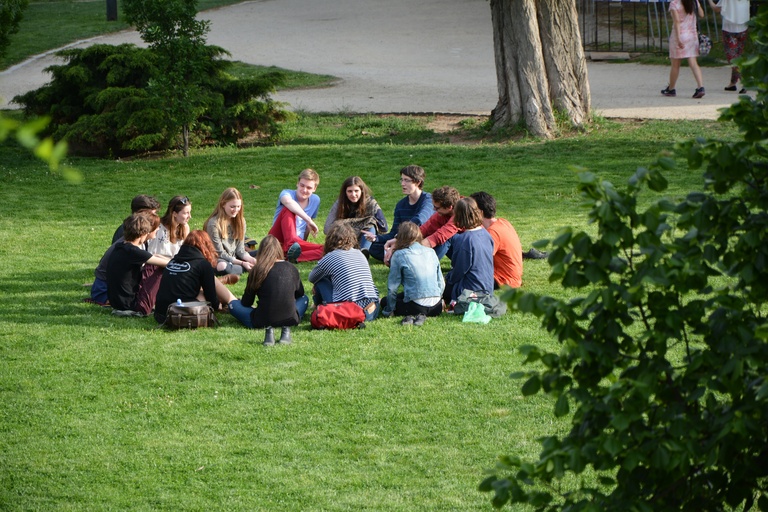
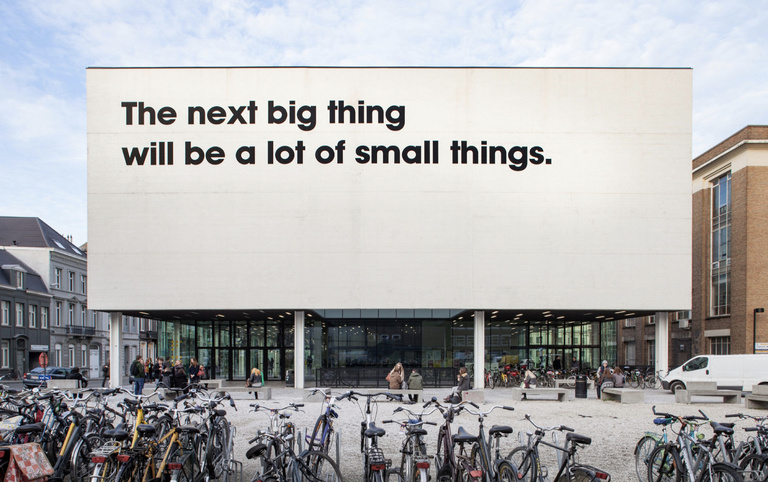
Thomas Lommée - © UGent, photo Hilde Christiaens
Listening to young people
In the first phase of the study, we brought young people together to question the forms and methods of engagement. Our goal, however, was to not only capture the traditional forms of engagement (such as signing a petition, volunteering at an NGO,...). We were examining the way in which young people describe and assess their civic engagement. How are young people engaged today? What forms do their initiatives and actions take?
Through meetings, exchanges and debates with young people all over Belgium, the richness, abundance and eclecticism of the forms of civic engagement are revealed. We are far from the idea of passive youth, indifferent to social problems. Indignation among young people is real and so is the will to act. Most start on a small scale, in their family or circle of friends, locally and bottom-up. They take positions and try to change their habits and behaviour and defend values around ecology, feminism or anti-racism.
"It’s me who explained feminism to my parents."
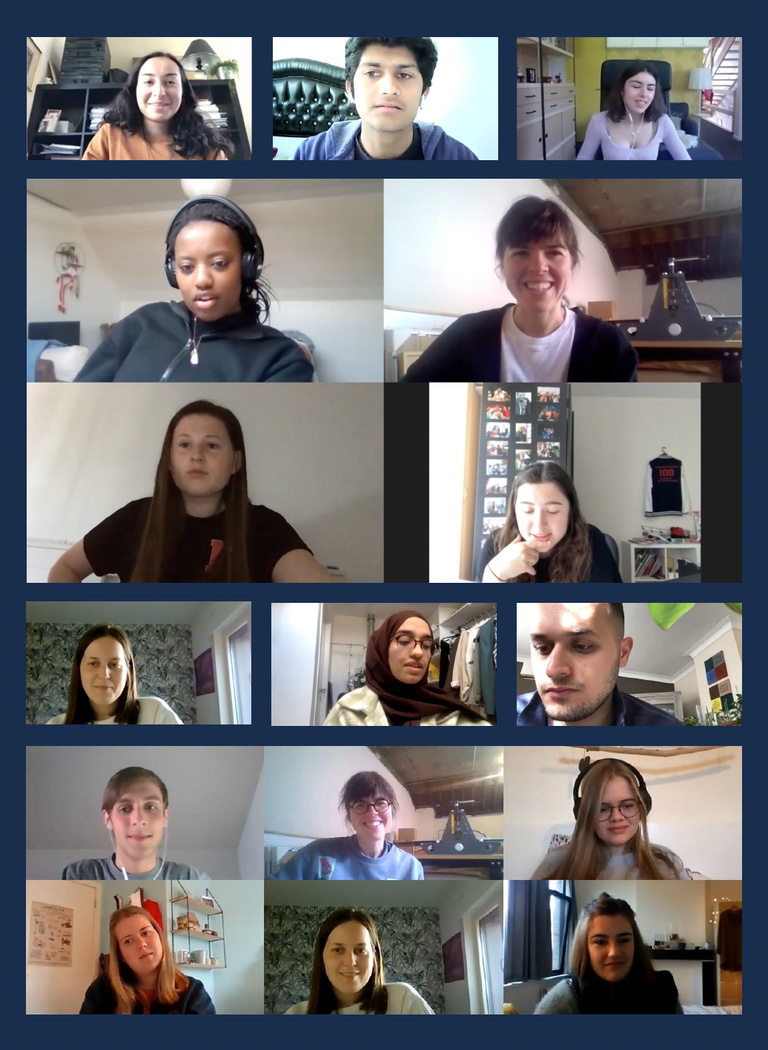
The age between 15 and 19 is an important identity-forming period in which young people not only get to know themselves, but it is also the moment when they (learn to) open themselves more and more to the world around them. It is during this period, propelled by the sphere of influence of family, school, friends, social networks, that indignation and trust intermingle, that a sense of power but also the feeling of being powerless develops, that there is a desire for a collective but at the same time a seeking of self-affirmation. This phase of life is about developing and questioning values and choices little by little.
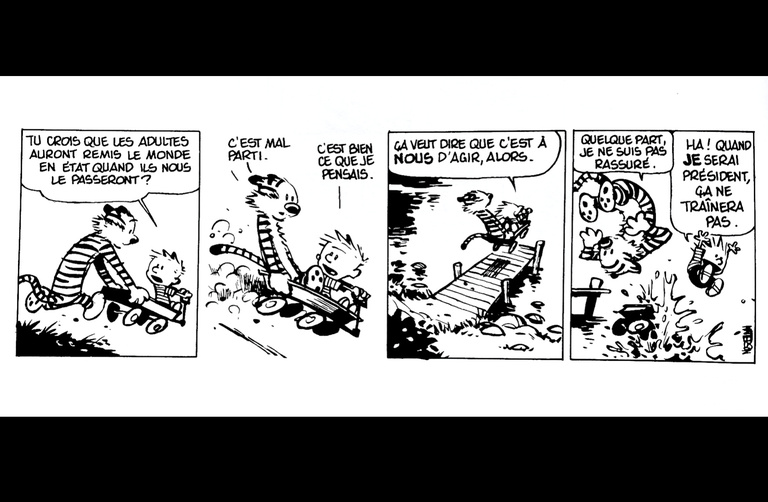
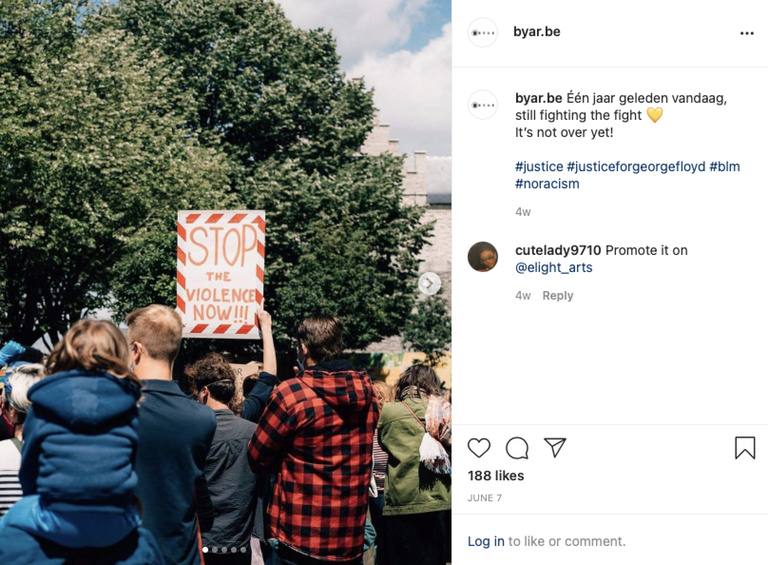
Everyone involved
The experiences described by young people invite us to think about a broader concept of engagement: engagement is not just about being part of an organisation. For young people, engagement is often informal and takes place outside the usual and well-known organisational structures (NGO’s, associations, etc.): it is the result of individual and spontaneous initiatives, such as the decision to speak out on social media, to organise a meeting or sit-in, to set up a charitable action. Driven by the will to act, young people take initiatives without necessarily being part of any formal structure.
The three of us started off at NGOs: Amnesty International and Oxfam. At a certain moment the match was gone. We wanted to express our engagement in another way.
Barriers to engagement
Not all young people have the same background, and not everyone is encouraged in the same way by their social, family or school environment. At the same time, the ecosystem of NGOs and organisations in Belgium is large, fragmented and difficult for young people to understand. For those who have not been part of it since childhood, it takes courage to knock on their door. A great deal of what young people do, happens outside these official structures. It may explain why polls fail to accurately describe the energy of young people.
With respect to legislation, to government, you could say they are untouchable, that there is an indifference. (...) I see that I can change the opinion of my classmate who is transphobic but I can’t change politics!
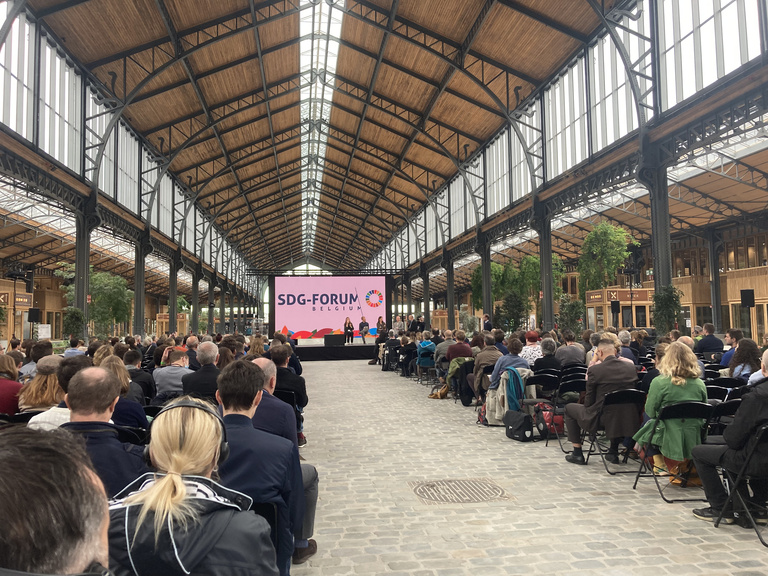
Presentation @ the SDG Forum
Proof of concept
The work of Méthos resulted in two reports (for Enabel and Plan International Belgium). Key findings on youth civic engagement were disseminated through webinars and the SDG Forum. In addition, a series of podcasts was developed with portraits of six engaged young people.
We are currently working on the continuation of the project during which we develop a POC (Proof of Concept) together with a youth collective. During this trajectory, led by a team of young Belgians and young people from Enabel's partner countries, we reflect and experiment on how young people can engage in international solidarity in a less traditional way. Stay tuned!
Making-of
Sint-Nickielaas. Example of civic engagement in a secondary school.
1 Ce qui mobilise les jeunes. Valeurs, centres d’intérêt et positionnements des jeunes en Fédération Wallonie-Bruxelles. Survey among 500 youngsters between 14 and 19 years old by research institute Dedicated, commissioned by Annoncer la Couleur (Enabel).
Read more
• Executive summary - factsheets (fr / nl)
• Final report Enabel (fr / nl / en)
• Article on Apache.be (nl)
• Final report Plan International Belgium (fr-nl)
Listen
• Podcast series - Portraits of young people and their engagement
Watch
• Presentation of the study (webinar)
• After movie
• Film - Bigger than us by Flore Vasseur (2021)
Further reading
• Étude - Annoncer la Couleur / Kruit (2019) (FR). Ce qui mobilise les jeunes. Valeurs, centres d’intérêt et positionnements des jeunes en Fédération Wallonie-Bruxelles. Résultats du sondage effectué auprès de 500 jeunes de 14 à 19 ans.
• Les différentes faces de l’éducation à la citoyenneté mondiale (FR) - Rapport Enabel 2020
• Barrett, M. & Pachi, D. (2019). Youth Civic and Political Engagement. London: Routledge.
• Bennett, W. L. (2008). Changing citizenship in the digital age. In W. L. Bennett (Ed.), Civic life online: Learning how digital media can engage youth (pp. 1-24). Cambridge, Massachusetts: MIT Press.
• Thijssen, P., Siongers, J., Van Laer, J., Haers, J., & Mels, S. (Eds.) (2015). Political Engagement of the Young in Europe. Youth in the crucible. Abingdon: Routledge.
• Siongers, J., Keppens, G., Spruyt, B., & Van Droogenbroeck, F. (2019). On the digital lane to citizenship ? Patterns of internet use and civic engagement amongst Flemish adolescents and young adults. Journal of Social Science Education, 18(2), 67–86. https ://doi.org/10.4119/JSSE-90
A project of Kruit and Annoncer la Couleur, world citizenship programs of Enabel, the Belgian development agency.
Other projects
Children's rights
Involving children from the Fédération Wallonie-Bruxelles in preparing policy on their rights, with debates and artistic workshops.
A participatory journey with over 100 children from the French-speaking Belgian Community, to prepare policy on their rights. We spent a year in workshops, creating, debating and feeling moved.
• Download the report (fr)
• Watch the video
